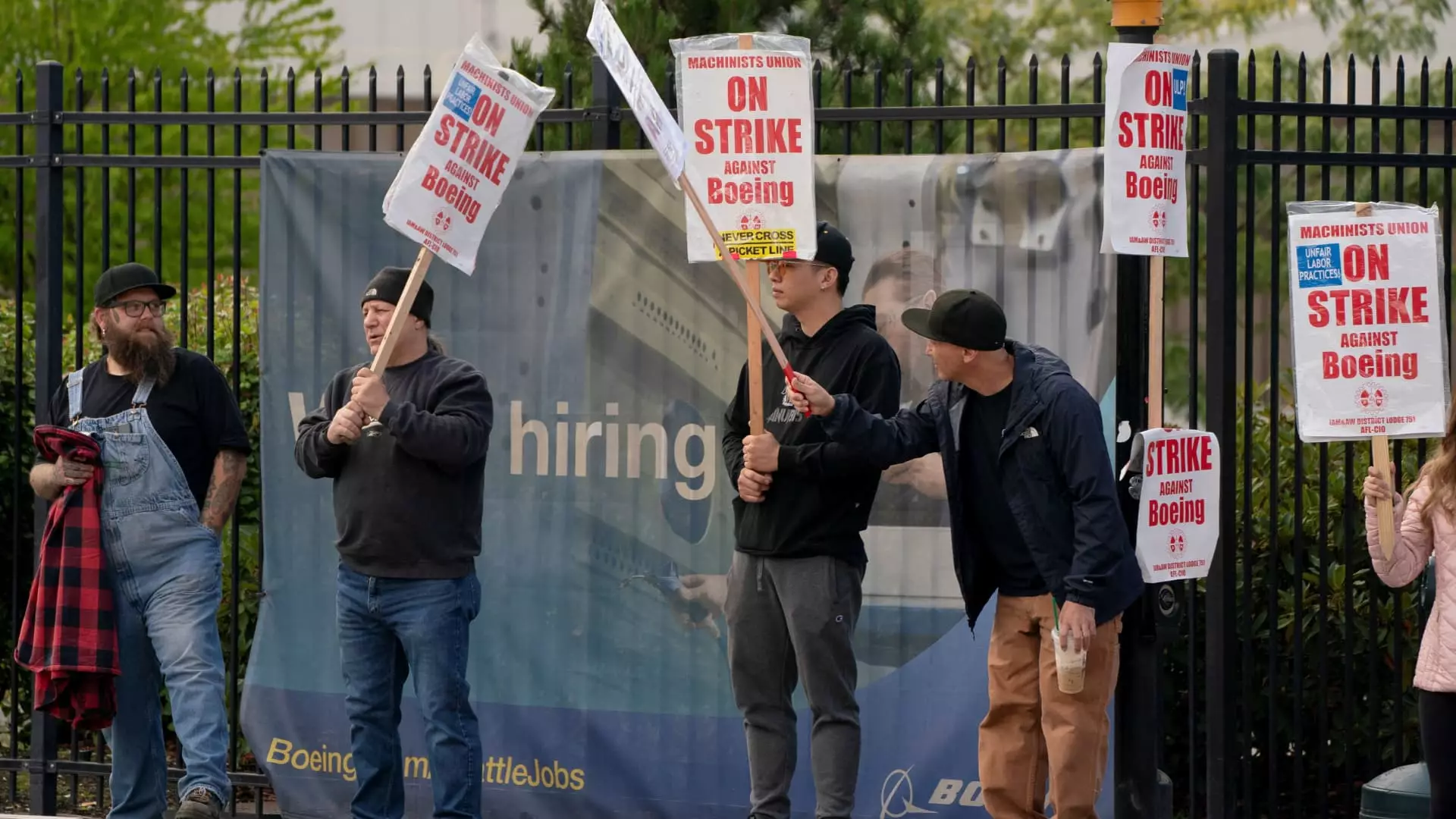In a decisive move, Boeing is implementing significant cost-saving measures in response to a labor strike affecting over 30,000 factory workers. The company announced these strategies on Monday, which include a hiring freeze, limitations on nonessential staff travel, and cuts to supplier expenditures. These actions reflect Boeing’s attempts to maintain financial stability amid disruptions in its operational capacity, particularly pertaining to aircraft production.
The labor unrest commenced when a large segment of Boeing’s workforce, primarily based in the Seattle area, walked off the job following the rejection of a tentative labor agreement. This strike began early Friday and has had immediate repercussions on the company’s manufacturing activities, essentially halting the production processes for crucial aircraft models. The strike not only affects Boeing’s pipeline but also places strain on its relationships with the numerous suppliers dependent on ongoing contracts and production schedules.
Boeing’s Chief Financial Officer, Brian West, expressed that the company would be implementing “significant reductions” in supplier spending. This could lead to a ripple effect throughout the supply chain, raising concerns about job losses and economic stability among partners and subcontractors who rely on Boeing for their livelihood.
Boeing’s financial health is currently at a precarious intersection, exacerbated by a prolonged strike that could worsen its already strained balance sheet. With the company’s substantial debt levels and previous losses—amounting to approximately $8 billion in the first half of the year—shareholders and financial analysts are closely observing the developments. The announcement that Moody’s and Fitch Ratings are reviewing Boeing’s credit ratings for potential downgrades further amplifies the urgency of the situation. A downgrade may lead to higher borrowing costs, complicating the recovery strategy envisioned by the new CEO, Kelly Ortberg.
West’s communication emphasizes an urgent need for dialogue with union representatives to restore normalcy. The situation is made more complex by the looming possibility of temporary furloughs for workers across various levels in the company, which could further impact employee morale and productivity.
A Focus on Safety and Quality
Despite the sweeping changes being made, Boeing is making it clear that they will not compromise on investments related to safety, quality, and customer support. West’s assurances to maintain funding in these critical areas indicates a recognition of the importance that safety holds, particularly in the aerospace industry, where standards are non-negotiable.
Boeing is at a crucial juncture where strategic decisions must be made to navigate the current labor disputes while ensuring the company’s long-term viability. The actions being taken to preserve cash flow signal a dire need to reevaluate operational protocols. It is imperative for Boeing leadership to engage constructively with its workforce to foster a collaborative environment for resolving disputes. Without swift and effective negotiations, the consequences could ripple through not just Boeing, but also the entire aerospace industry, which is still trying to recover from the disruptions of the past few years. The path forward hinges on both effective leadership and the willingness of all parties to prioritize collective stability over individual gains.

